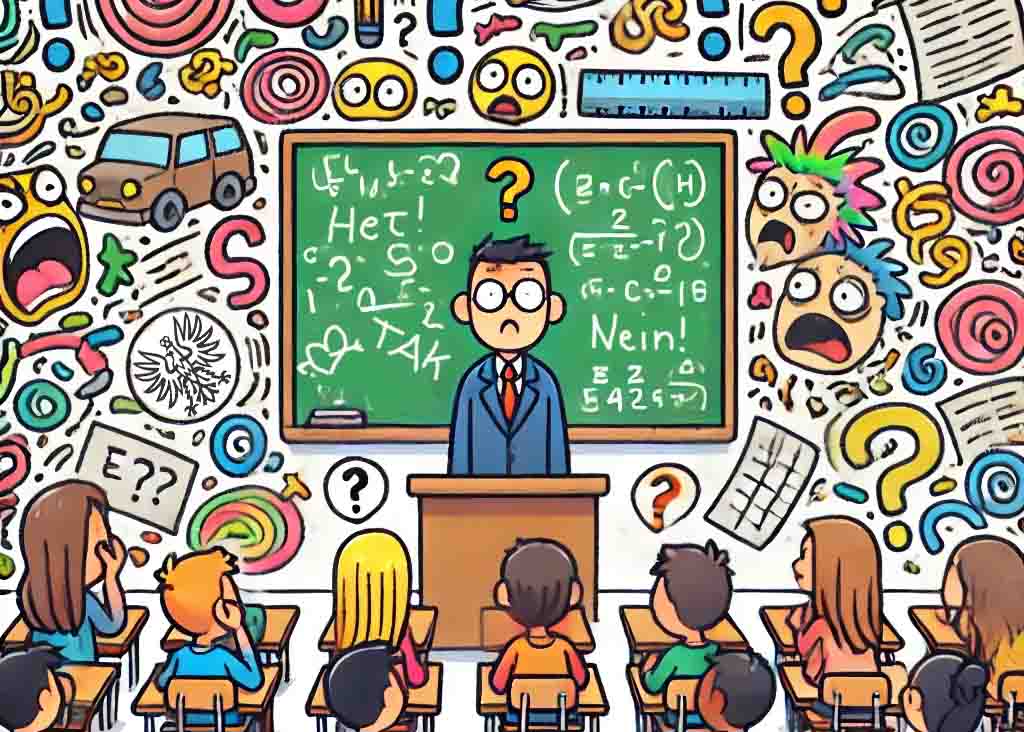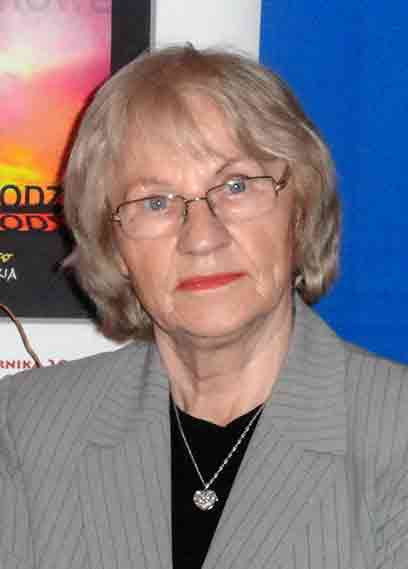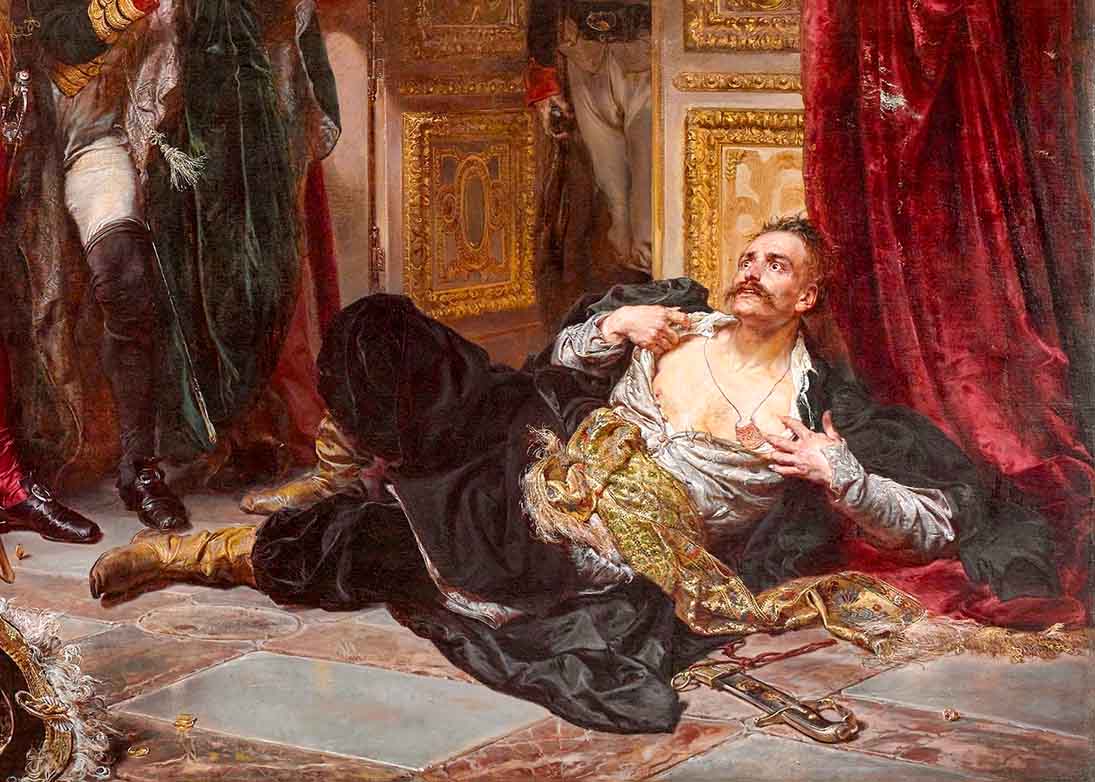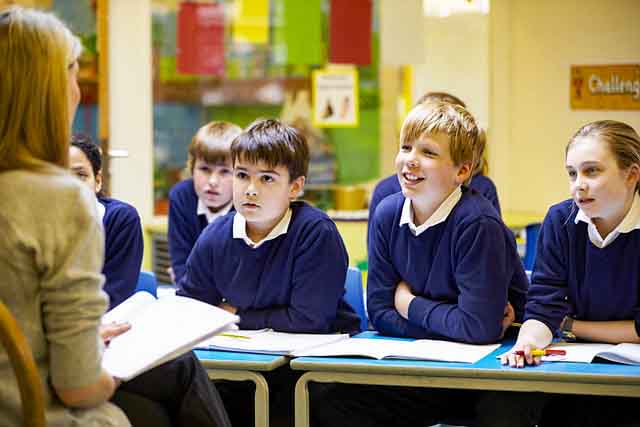One of the most enlightened Poles — Jan Zamojski — appreciated education in the development of the state. "The Commonwealth will be as its youth are raised," he stated at the opening of the Academy in Zamość, founded in 1594. History has confirmed his words many times. When the decline of education occurred, it was followed by economic and political decline and, as a result, loss of independence. The school's task is to prepare young generations to take over and continue the development of our state. The school is to teach life in society. It should adapt methods and tools to this purpose.
A hundred years ago, we learned from the wise rhyme "Everyone for Everyone" that we need each other, that is, there is a division of labor, that there are supply chains, but also that we are responsible for our work and for the other person, and that family and friendship are the most important, because the success of all other activities depends on them. Old Doctor (Janusz Korczak) taught us through the adventures of little Jack how to manage funds and bear the bitterness of failure due to bankruptcy. That was yesterday.
Today we have different tools, different teaching methods, different environment, but school should always teach independent thinking. Our roots are firmly anchored in Greek philosophy, Roman law and Christian morality. Education should be guided by the pursuit of the humanistic ideal of man. Regardless of time and place, the basic goals should remain unchanged. They should…
Will it be so? Will it remain so, we will soon find out in the teaching process, which is undergoing yet another modernization, now called "slimming down the core curriculum". "Slimming down" began in April with a ban on homework for toddlers, and serious restrictions on intellectual education were planned for September, the beginning of the school year that falls this year on the 80th anniversary of the outbreak of World War II. Let us remember that in this war the invaders tore away our elites — the brain and heart of the nation.
Education is a long, multi-level, and multi-dimensional process. An educated person is a person who knows the history and culture of humanity, but above all the history and culture of their nation, who appropriately assesses social phenomena and processes, and who finally contributes their own achievements to the treasury of the nation's and the world's history. Anyone who diligently attended history lessons knows that it rarely happened that a ruler would act against his people. If this happened, he was punished. Examples of this can be seen during the Kościuszko Uprising.
Economic development and wise reforms went hand in hand with a high level of education, in which patriotic and moral education held the most important place.
What does the latest education reform bring us…?
This reform undermines the foundations of our national, or rather, human identity. An example of this is the attempt to change the permanent exhibition at the Museum of the Second World War in Gdańsk. At the end of June, the new management of the museum decided to remove portraits of Fr. Maksymilian Kolbe, Witold Pilecki and the Ulma family from the exhibition. They allegedly “broke up the artistic composition and narrative coherence of the exhibition”. The social sensitivity of Poles is still strong enough that after the protests the original form of the exhibition was restored.
Maybe this trick will work in due time, when the reduction of religion lessons from two to one hour per week and combining students from different classes in the first or last hours will completely discourage learning religion and learning the basics of Christian morality. Teachers of the subject (catechists) are being offered a change of qualifications or a change of place of work.
This change will also solve other problems at school — especially financial ones. For example, it will allow schools to allocate third toilets for non-binary people and install pink boxes with hygiene materials.
Since September, the subject History and the Present is disappearing, and Health Education is being introduced. There would be nothing wrong with this if it were not planned to introduce sex education under this innocent-sounding name and to abandon the subject Education for Family Life. After all, the family in the new sense takes on a completely different shape. These changes are being violently protested against by teachers, parents and academic circles.

(Illustration: A. Woźniewicz)
The reduction of the core curriculum of history and Polish language will wreak further havoc. About 20% of the content will be removed. The number of 20% itself does not say much. What will be removed raises great concerns, especially in the context of our relations with our neighbors from the west and east and the European Union. Fragments of the Polish Chronicle by Gallus Anonymus and the works of St. John Paul II and Blessed Cardinal Stefan Wyszyński have been removed from the reading list. This is a decisive declaration of war against religion and Christianity, and with it, the decline of morality based on Christianity is progressing. In place of the vacuum will another morality enter... secular...? Muslim...?
History is the teacher of life and shows the reasons for the fall of great powers. If the shape of Polish-German relations is to be changed by "slimming down" the history program, then a red light should go off for the Polish patriot. Content concerning the historical Polish-German rivalry has been cut. The significance of the Battle of Grunwald has been minimized, critical information about Prussia has been crossed out, and information about the material and demographic effects of the German aggression against Poland in 1939 has been limited. Fragments about the extermination of Polish elites, the plunder of Polish cultural assets, and economic exploitation in occupied Poland have disappeared. The terms "Unbroken Soldiers" and "Cursed Soldiers" have evaporated. How much will Poles gain from this change?
Especially now, when we have national minorities, education for them should be symmetrical. There can be no consent for the activities of anti-state groups that write on the walls of schools "Batko our Bandera" and "Glory to Ukraine". It also cannot be that the 2 million Polish minority in Germany has fewer privileges than the 700,000 German minority in Poland.
Poland and the Polish experience of war are treated completely marginally in dozens of German history textbooks. When asked by a Polish journalist what they learned about Poland, German high school graduates unanimously answered that they learned nothing apart from the attack in September 1939 and the Warsaw Uprising, associated with the Jewish armed uprising in the ghetto. They are not told about the crimes against civilians, about the terror and crimes against the Polish intelligentsia, about the Warsaw Uprising, the Polish underground state and the lack of a government collaborating with the Third Reich, which was unique in Europe. They also know nothing about the Home Army and large-scale resistance, about slave labor, or about concentration and extermination camps – according to teachers, there was none of that in Germany.
The war in Poland is simply a meaningless episode and if it weren't for the Holocaust, it wouldn't be worth mentioning. No one explains to the young that the occupation in Poland was 2,000 days of constant terror, that the Poles were to be exterminated like the Jews and that their German ancestors largely succeeded in this, that famine was a tool of the racist policy of the German elites and the extermination of the Eastern Slavs, that the goal was "living space" (Lebensraum) in the east — ensuring prosperity for the Germans at the expense of the exploited and exterminated Poles.
The head of the Berlin branch of the Pilecki Institute, Hanna Radziejowska, explains in an interview with PAP that German high school graduates are told about the war through two topics: the description of the Holocaust and the German resistance movement against the Third Reich. Ms. Radziejowska states that in the 335-page book intended for high school graduates, covering the years 1815-1945, 54 lines of text are devoted to Polish issues, and 20 pages are the history of the Holocaust and 13 pages of a detailed discussion of German resistance groups, which actually did not exist. In none of the books will students learn about our demographic losses and the scale of the plunder of our country, about the collapse that their fathers and grandfathers brought upon us, about the destruction of the achievements of many generations of Poles. According to this German narrative, the "real" war of attrition begins in June 1941. The Polish Ministry of Education is tasked with taking care of our true-to-the-facts historical image abroad.
There is no doubt that the entire educational reform has negative connotations for Poles. There is no doubt that it aims to denationalize the young generation, which will be much easier to subject to the pedagogy of shame and consequently accuse of all the evil of Europe and punish with the loss of independence.
The Coalition for the Salvation of Polish Schools (Koalicja na Rzecz Ocalenia Polskiej Szkoły, KROPS), which brings together organizations, parents, teachers, friends of children and schools, is organizing against the unacceptable actions of the Ministry of National Education. It has sent an appeal to the President of the Republic of Poland, Andrzej Duda, calling for action to save the Polish education system. KROPS is also asking for help from the American Polish community in defending the identity character of Polish schools. The long tentacles of the reform will probably also reach Polish schools abroad.
Translation from Polish by Andrew Wozniewicz.









